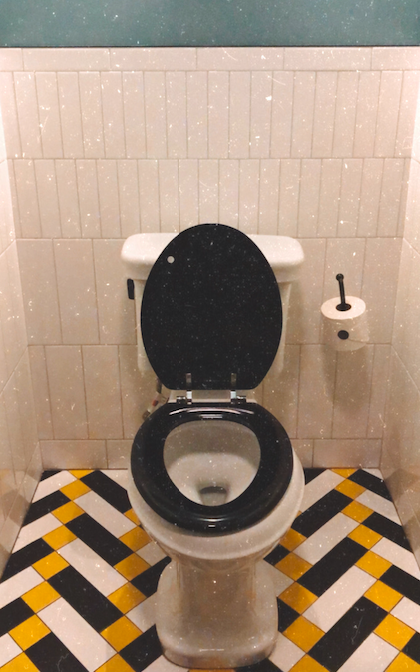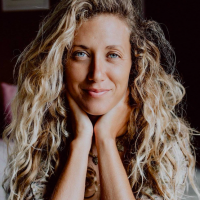To read all of Janne’s offerings on Elephant, going way back: here.
~
Here’s what having courage to hold space for our emotions looks like for me:
In Rory Ray’s course, “How to be a modern siren,” she states that we can somatically move through an emotion in seven minutes.
She suggests taking a physical posture where you get on your knees and sit down, drop your head to hang, bringing your face and chin to your chest and heart. Closing your eyes—and having the courage to go as deep as you can into what’s showing up for you.
I sometimes set an alarm for seven minutes and commit to being present and fully in that emotion for the duration of that time.
Our emotions are our teachers, and I honor them all for what they bring to me.
Here’s this tool in action:
I am sitting at a bar top at Mothers, a restaurant in Portland. I’ve had trouble contacting my partner who is spending the day visiting with friends. I initially felt irritated and angry and sensitive with him for not answering.
I waited in the lobby for 20 minutes because I couldn’t reach him and felt unclear of our plan, and was hangry after teaching my women’s group so the 20 minutes felt like 200 minutes.
I then tried him again trying to get his order for our dinner as we are traveling and couldn’t get through.
On a conscious level, I felt irritated and like he wasn’t being present or considerate.
I started to feel really emotional, so I went to the bathroom in the restaurant and sat on the toilet and took the posture—dropping my head in and really connected to what was there.
“I don’t feel considered.”
“I feel like I’m not important.”
“I feel abandoned.”
The tears started to fall from my face and I started to sob.
In this moment my pain body is present—Martha is what I call her—and she’s taking me on a story wheel.
I continue to cry.
“I’m worried if I continually ask for things that I need—because I’m more rigid than my partner and sometimes controlling—that he’ll leave.
Freedom is important to him.
I’m worried my needs for presence will drive him away. My last partners chose freedom over me. Freedom over commitment to me.
I’m afraid.
This comes from…feeling like my father chose his freedom over raising me. Not being chosen. Wound…wound.”
And I cry the entire time and release each wave as if it shows itself to me.
I finish crying and understand what is mine, what is pain body, what I need to carry to my partner, and what was mine to feel and process alone.
This is emotional responsibility for me—getting clear and not throwing it all on him.
Moving from a place of heart and softness, rather than rage.
The reality is, one of the things I love most about my partner is how deeply present he is when he does anything—visits with friends, or himself. He’s all in. I love this about him.
After holding space for myself and what’s mine—then I can bring this to him.
That looks like,
“I felt _______. I acknowledge that _______ is from _______ and my pain body. I understand we didn’t have an agreement and I love that you were present with your friends and also that you have your phone on silent 24/7 like me. Moving forward I would like to make an agreement that when we are traveling or need to coordinate that we put our phones off silent and keep them visible.”
Leading with accountability looks like,
“I felt this…”
Rather than,
“You did this” (full of blame, victim energy).
Some of that might be from…acknowledging wounds or triggers from parents/past relationships and stories we recreate…and not about you.
Moving forward, I would love to make this agreement _______.
Meeting ourselves with courage is the first step to being met by this world.
~
~








Read 4 comments and reply